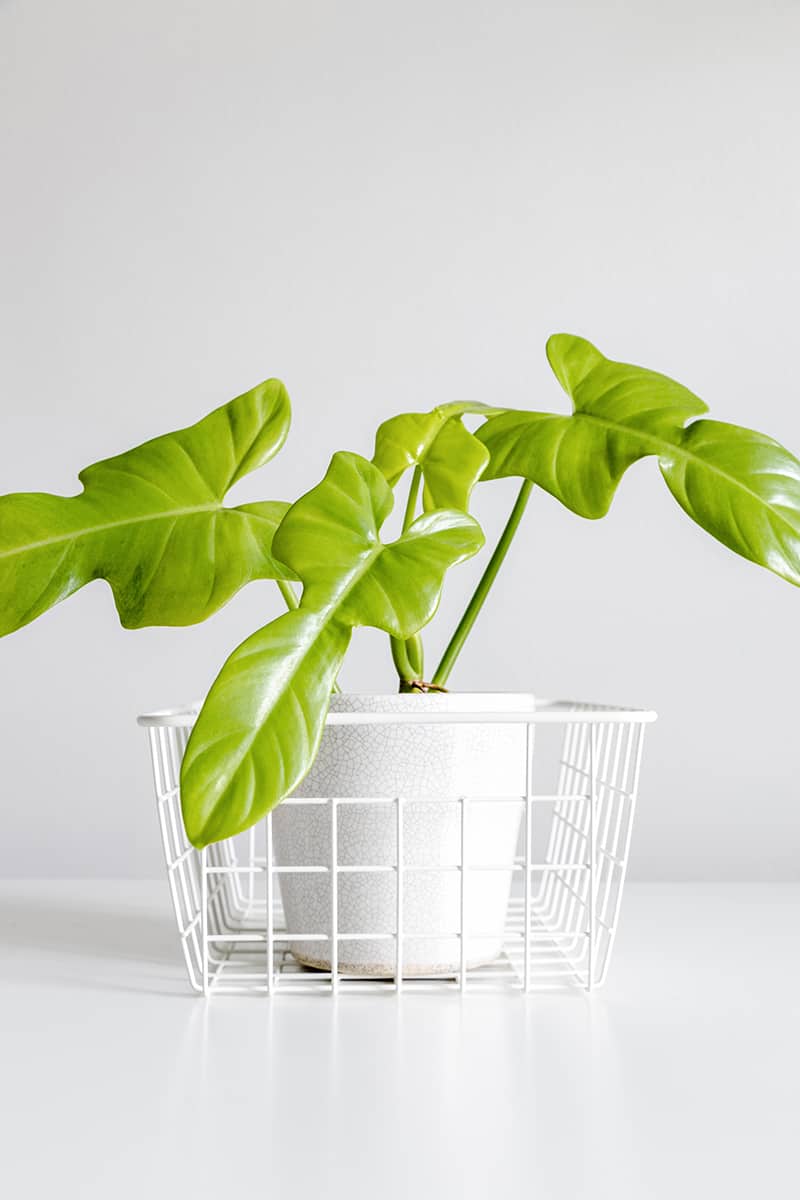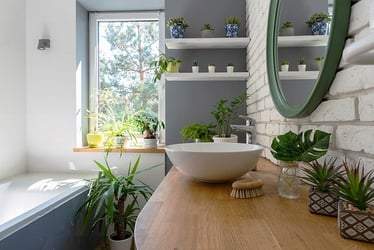- Home >
- Ground Cover Plants >
- Indoor Hanging Plants
Indoor Hanging Plants for Sale - Buying & Growing Guide
Do You Know Your Growing Zone? i Growing zones help determine if a particular plant is likely to grow well in a location. It identifies the average annual minimum winter temperatures across the U.S. provided as a map by the USDA.
3 Results
Indoor Hanging Plants – Buying & Growing Guide
Hanging plants add a level of intrigue that few other pieces of decor can give to your indoor living spaces. These plants show off their dangling foliage while trailing out of hanging containers. If you want one of these plants for your home, there are many species you can choose from.
Types of Indoor Hanging Plants
| Type | Growing Zones | Mature Height | Sun | Features |
| Pothos, Epipremnum aureum | 10-12 | 15 to 20 feet | Partial Shade: 3 to 4 hours | Long trailing vine with variegated leaves. |
| Heartleaf philodendron, Philodendron hederaceum | 10-11 | 10 to 20 feet | Shade to part shade: 4 hours or less | Long vine with large heart-shaped leaves. |
| English ivy, Hedera helix | 4-8 | 6 to 8 inches | Full sun to shade: 2 to 8 hours | Trident leaves, grows as a vine or groundcover. |
| Boston fern, Nephrolepis exaltata | 9-11 | 6 to 8 inches | Shade to part shade: 2 to 4 hours | Drooping light green fern-shaped leaves. |
| Spider plant, Chlorophytum comosum | 9-11 | 1 to 2 feet | Full sun: 6 to 8 hours | Thin two-toned leaves. |
| Hindu rope plant, Hoya carnosa compacta | 8-11 | 12 to 20 feet | Full sun to part shade: 4 to 6 hours | Twisted rope-like shape with bright flower clusters. |
| Prayer plant, Maranta leuconeura | 11-12 | 10 to 12 inches | Full sun to part shade: 4 to 6 hours | Oval leaves with a captivating pattern. |
| Strawberry begonia, Saxifraga stolonifera | 6 to 9 | 8-10 inches | Shade to part shade: 2 to 4 hours | Rounded but irregular leaves with a pink-tinted variegation. |
How to Grow Indoor Hanging Plants
Growing hanging indoor plants is quite similar to growing and caring for any other type of indoor plant. For each species, you will need to have an in-depth understanding of what they need to grow and how they will perform in an indoor setting.
For many indoor plants, it is important to find an area with the ideal degree of sun exposure. Some plants may need all the sunlight that your windows can provide, while others will prefer basking in moderate amounts of indirect light.
The climatic conditions of your home are also a factor you should consider. For example, radiators and air conditioners can create an unnatural air quality that your plants won’t like. In most scenarios, these units cause the air to be too dry. Especially when caring for tropical plants, you’ll need to combat that dryness with a humidifier or by misting your plants.
The Benefits of Houseplants
Hanging plants, and houseplants in general, have a praiseworthy ability to enhance our indoor living spaces. Even on a subtle level, the addition of indoor plants makes for an atmosphere that appears healthy and calm.
The presence of peaceful, healthy plants affects us on a subconscious level. They also have an undeniable visual impact. At times, the addition of a few hanging plants is just what a room needs to bring its appearance to the next level. The wide variety of hanging plants for indoor settings is what permits you to select a species that complements the rest of your decor scheme.
Hanging plants stand out compared to their indoor counterparts because of their captivating growth habits. There are many indoor plants that have brilliant leaves and flowers. But few grow in a way that is as intriguing as a hanging plant.
Hanging plants can have long spindly stems that droop over the edges of their containers. They can also develop a vine-like quality and begin to grow along nearby structures. But what may be the most beneficial aspect of growing and caring for an indoor plant is the rewarding feeling you will have when you see it perform well.






